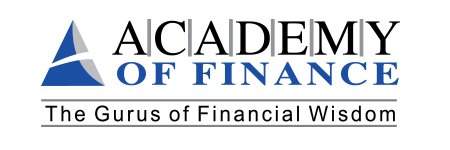
CEO Message: Management Accountants are not Accountants!
When I am asked as to what my profession is, and I respond “management accountant”, I am often asked if I can audit and sign off financial statements; or do tax returns, or worse still do I keep the books of a company! I have to politely say, “I am not that kind of accountant”, leaving my questioner extremely puzzled.
I try to explain that, drawing an analogy that “a General Medical Practitioner and a Dentist are both health professionals, but have significantly different knowledge areas and employment skills – it is the same with generalist accountants and management accountants”.
My questioner has by this time lost interest in the topic!
The point is that whilst the basic qualification for both Accountant (General) and Management Accountant would be an undergraduate degree or equivalent professional qualification, the knowledge areas and employment skills required are as different as those required of General Medical Practitioners and of Dentists. Therefore, similar to the reasons why the College of General Practitioners does not assess the skills of dentists and leaves this instead to the College of Dental Surgeons; the ICMA is the peak national body for the management accounting profession.
Generalist Accountant vs. Management Accountant
The management accounting profession is no longer a mere specialisation of accounting, it is instead a separate profession. In the medical profession, the many specialisations within it have evolved to be professions in their own right in Australia; each with a particular body of knowledge and practical application. The practitioners of the different health professions cannot be grouped as different specialisations of medicine, and all practitioners (including general practitioners) have now to meet mandatory knowledge areas and employment skills of their different professional colleges.
Similarly, although accounting practitioners and their specialisations have not evolved as much as the health practitioners; management accounting is an exception to the rule. It has evolved over the past one hundred years; and is now seen not merely as a specialisation of accounting, but as a different profession with its own body of knowledge, mandatory knowledge areas and employment experience requirements. This is especially the case in other developed countries such as the UK, USA, and Canada; which also have their own professional organisations for the education, training and continuing professional development of management accountants.
In fact, the Australian Bureau of Statistics definition of Accountant (General) is very different to that of Management Accountant.
Both professions are listed under UNIT GROUP 2211 ACCOUNTANTS; and state that ACCOUNTANTS provide services relating to financial reporting, taxation, auditing, insolvency, accounting information systems, budgeting, cost management, planning and decision-making by organisations and individuals; and provide advice on associated compliance and performance requirements to ensure statutory and strategic governance.
Three separate professions listed within the ACCOUNTANTS group. They are 221111 Accountant (General); 221112 Management Accountant and 221113 Taxation Accountant.
The ABS states that an 221111 Accountant (General):
Provides services relating to compliance-based financial reporting, auditing, insolvency and accounting information systems; and advises on associated record-keeping requirements. Registration or licensing may be required for certain services such as auditing. The 3-Specialisations listed under this profession are: (1) Financial Analyst; (2) Insolvency Consultant and (3) Insolvency Practitioner.
In contrast, the ABS states that an 221112 Management Accountant (with an alternative title of Cost Accountant):
Provides services relating to performance-based financial reporting, asset valuation, budgetary systems, cost management, pricing, forecasting and the strategic governance of organisations. Provides advice on financial planning, risk management, carbon sequestration projects and carbon pricing and provides management with reports to assist in decision-making. May provide insight into cost performance and support the implementation of benchmarking and quality improvement initiatives. Registration or licensing may be required. The 3-Specialisations listed under this profession are: (1) Carbon Accountant; (2) Commercial Accountant and (3) Product Accountant.
These definitions indicate that an Accountant (General) is a financial accountant looking at the (past) compliance-based financial reporting; whilst the Management Accountant provides (future) strategic performance-based financial reporting (see Table 1).
As per the ABS definition, a financial accountant is a person who prepares financial statements that report on how an organisation has performed in the recent past and may undertake audits to ensure the veracity of those statements.
This is very different to the role of the management accountant, who provides the support managers need to make critical financial and operating decisions about the future. They do this by first analysing and interpreting “the numbers” than communicating the information that is relevant to their manager “clients”, to create value in the organisation.
The essential differences are therefore that:
- Financial accountants provide information to stakeholders external to the company about how the value was generated in the past, whilst management accountants provide information to internal managers as to how to create value in the future.
- Financial accountants prepare reports that are primarily used by persons external to the company such as stockholders, tax professionals and lenders. The reports show concrete numbers, as well as past mistakes and achievements. These documents are objective, factual and avoid projections.
- Management accounting reports provide their recipients with benefits that are unique to each format and use the achievements of the past to provide estimates and insights into what might happen in the future. A manager needs projections and would rather use estimates on what will happen than reports on what has already happened because of the ever‐changing financial terrain in business.
Management accounting and financial accounting both serve important roles within a business. These roles are significantly different, but equal in importance.
ICMA’s Mandatory Knowledge Areas for Management Accountants
Based on ICMA’s 21-years of research, education and training in the profession, it has developed competency requirements needed for the role of a management accountant that is significantly different to that of an accountant (general). An aspiring management accountant will need to cover all 10 of the mandatory knowledge areas as listed in Table 2.
It is expected that applicants with an Australian bachelor’s degree in accounting or a 12 unit accredited Australian master’s degree in accounting OR an overseas qualification comparable to at least the level of an Australian bachelor’s degree in accounting will have covered the eight mandatory core knowledge areas listed in Table 2.
With regards to the two mandatory specialist knowledge areas (i.e. Strategic Cost Management and Strategic Business Analysis shown below), these can be undertaken at the many Australian and overseas Universities, and Private Providers accredited by ICMA.
Despite these clear differences between generalist accountants (who mainly practice financial accounting and auditing) and management accountants, it is unlikely that we would be able to change the societal perceptions of our profession. However, members may wish to educate those holding senior positions in government or business (such as CEOs and CFOs) of these important differences in the two professions.
A long-time ICMA Fellow member and one inducted to the Global Management Accounting Hall of Fame, Mr. John Stanhope, had this to say about the two professions. [Mr Stanhope is Chancellor of Deakin University, Chairman of Australia Post and former Deputy CFO and CFO of Telstra over a period of 17 years]. He says:
“I always knew the importance of management accounting. I had about 20 statutory accountants reporting to me and several hundred of management accountants reporting to me. Whilst the statutory accounts are important, it is the management accounting reporting and analysis that make for good decision making. It is important to recognise the role of the management accountant as pivotal to the success of businesses”.
So true!
Professor Janek Ratnatunga, CMA, CGBA
CEO, ICMA Australia
The opinions in this article reflect those of the author and not necessarily that of the organisation or its executive.
TABLE 1: Key Differences Between Management Accounting and Financial Accounting
| Financial Accounting | Management Accounting | |
| USERS | A financial accounting system produces information that is used by parties external to the organization, such as shareholders, bank and creditors. | A management accounting system produces information that is used within an organization, by managers and employees. |
| APPLICATIONS | Financial accounting assists managers to make investment decisions & in credit rating. | Management Accounting works with management to record, plan and control activities and to aid the decision-making process thereby actively supporting value creation in their organisations |
| FOCUS | Financial accounting focuses on history. | Management accounting utilises history to focus on future, probability and risk. |
| OBJECTIVES | To report on past results to present a snapshot of the financial condition of the business at a particular date. | To proactively support management by providing the critically important information required to plan, evaluate, and control. |
| LEGAL OBLIGATIONS | Financial accounting reports are mandatory especially for limited liability companies. | There are no legal requirements to prepare management accounting reports but, in their absence, managers fly blind. |
| STANDARDS | Financial accounting is required to follow strict International Financial Reporting Standards (IFRS) and Generally Accepted Accounting Principles (GAAP). | There are no mandatory standards for Management Accounting reports. They are designed to meet the information requirements of management teams at all hierarchical levels of the organisation. |
| FORMAT | Financial accounts are prepared in accordance with a specific format determined by IFRS facilitating comparisons between the accounts prepared on behalf of different organizations. | No specific format is designed for management accounting systems. However, management accounting professional bodies provide best-practice reporting guidelines for their members. |
| TIME SPAN | Financial accounting statements are required to be produced for a period of 12 months defined as a fiscal period. | No specific time span is fixed for the publication of internal management accounting reports however a universally accepted convention is that the less current the information the less value it contributes. |
| UNIT OF MEASURE | Most financial accounting information is of a monetary nature. | Management accounting information may be monetary or alternatively non-monetary (process based). |
| CRITERIA | Financial accounting emphasizes precision & standardisation. | Management Accounting emphasizes on relevance to management. |
| THE PROCESS | Follows a full process of recording, classifying, and summarising for the purpose of analysis interpretation and disclosure of the financial information. | Cost accounting a critical Management Accounting function, analyses the relevant data captured within the transaction recording system in order to understand the drivers of cash flow and profitability. |
TABLE 2: Mandatory Knowledge Areas in Management Accounting
| Mandatory Knowledge Areas | Management Accountant |
| Financial Modelling* | Core Knowledge |
| Economics | Core Knowledge |
| Business Law and Governance** | Core Knowledge |
| Information Management | Core Knowledge |
| Strategic Management | Core Knowledge |
| Management Accounting | Core Knowledge |
| Financial Management | Core Knowledge |
| Financial Statement Analysis | Core Knowledge |
| Strategic Cost Management*** | Specialist Knowledge |
| Strategic Business Analysis**** | Specialist Knowledge |
| * To demonstrate competency in Financial Modelling applicants must be able to demonstrate knowledge of the use of excel spread-sheeting techniques in varied business areas including accounting systems & processes, product costing, budgeting, profitability planning and investment appraisal.
**Business Law and Governance includes both study in commercial law and corporations law. *** Strategic Cost Management includes areas such as Lean Accounting, Life-cycle Costing; Ethics, Corporate Social Responsibility; Sustainability Accounting and Strategic Governance Systems. **** Strategic Business Analysis includes Marketing Budgeting; Pricing; International Business; Supply Chain Management and Risk Management. |
|
